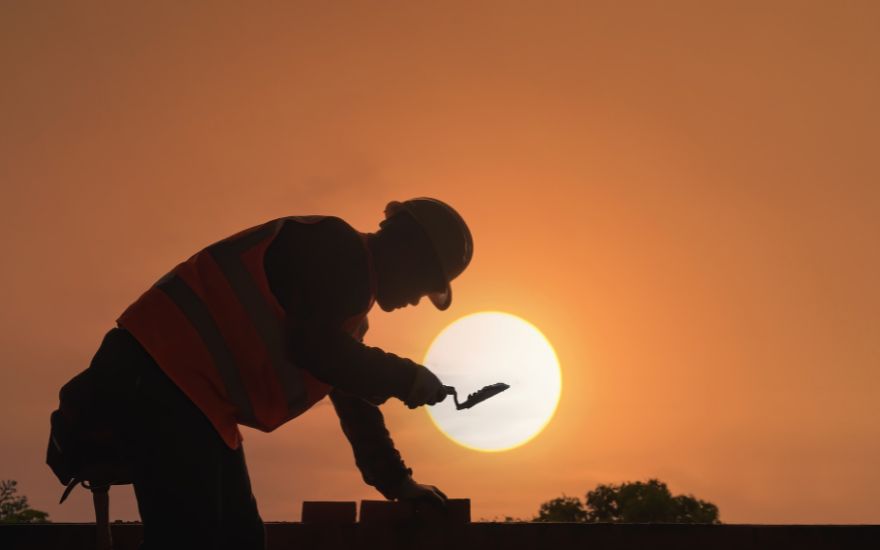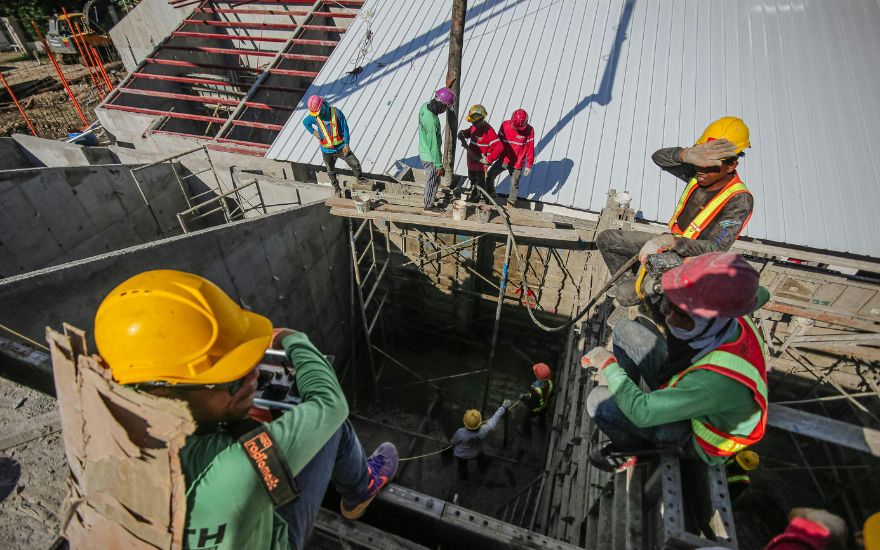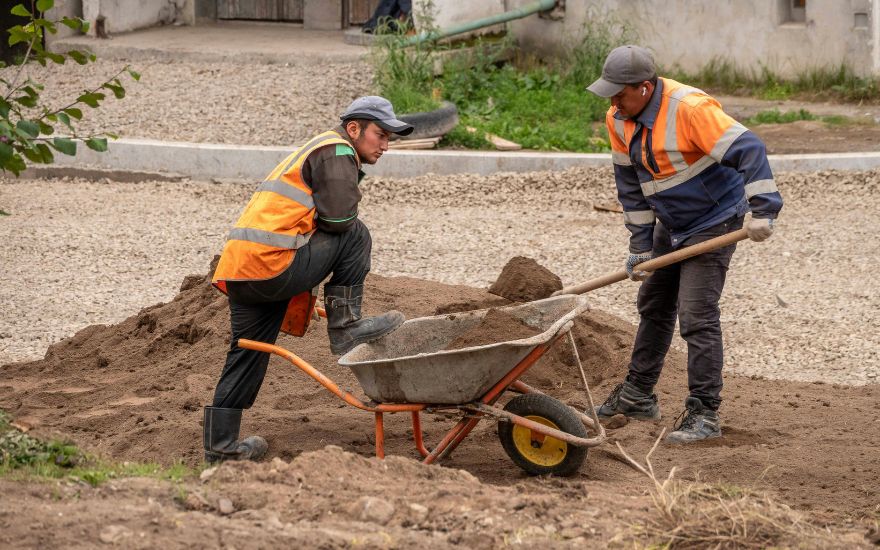Choosing the right construction firm can make or break a project. From missed deadlines to blown budgets and shoddy craftsmanship, the wrong partner introduces risks that ripple far beyond the job site. Whether you’re building a custom home, renovating a commercial space, or managing a property development, aligning with a capable and transparent construction company is critical to success.
This blog outlines the most common pitfalls that occur when you work with an ill-suited construction firm, how those issues derail your plans, and what you can do to prevent them. If you’ve ever experienced a stalled project, contractor ghosting, or unexpected costs, you’re not alone—and you’re not powerless. Let’s explore what to watch out for and how CozyCasa can help you avoid those costly mistakes.
The Hidden Costs of Choosing the Wrong Construction Firm
While cost is often the deciding factor in choosing a contractor, opting for the cheapest bid can backfire. Construction firms that underbid projects frequently cut corners, use inferior materials, or lack the manpower to stay on schedule. Over time, these compromises result in structural issues, delays, and additional expenses that exceed the original quote.
A poorly managed construction firm can also lead to increased project management costs for you. When clients have to constantly step in to manage timelines or quality, the firm has already failed to deliver its value. The time, stress, and financial burden of these missteps can turn even a simple renovation into a nightmare.
Additionally, these mistakes often go beyond project completion. You may find hidden issues weeks or months later, such as water damage, insulation problems, or code violations. Fixing these retroactively can be expensive and disrupt your home or business operations. In worst-case scenarios, structural problems could force you to pause operations, vacate a property, or rebuild entirely.
Not to mention, dealing with insurance claims or legal disputes from poor construction can further compound the cost—financially and emotionally. These consequences are rarely considered in the initial decision-making process, but they underscore why choosing the right firm from the outset is so essential.
1. Project Delays and Missed Deadlines
Timeliness is critical in construction. Missed deadlines don’t just affect your project’s end date—they can trigger penalty clauses, delay business openings, or cause you to extend temporary housing.
Many project delays stem from poor planning, lack of workforce, or supply chain mismanagement. A reputable construction firm will offer realistic timelines and actively communicate changes. When this isn’t the case, you’re left with a domino effect of delays and disruptions.
And delays have secondary consequences: permits may expire, seasonal constraints can affect outdoor work, and subcontractors may no longer be available when needed. Delays lead to additional delays if not managed proactively. Moreover, unplanned extensions in construction can also lead to client fatigue, dissatisfaction, and possible disputes.
When time-sensitive projects fall behind—like retail openings or lease-dependent turnovers—the cost of delay isn’t just measured in weeks, but in lost revenue and damaged brand credibility.
2. Budget Overruns and Financial Surprises
A common sign of the wrong construction firm is a trail of surprise invoices and unapproved expenses. These budget overruns often stem from inaccurate quotes, hidden fees, and change orders that weren’t properly scoped or explained.
A trustworthy firm will provide a clear and detailed contract, including contingencies and transparent billing practices. Without this, your budget can quickly spiral out of control, jeopardizing the entire project.
It’s also important to ensure that materials and labor costs are locked in as much as possible to avoid market fluctuation risks. A contractor should prepare you with realistic expectations, not blind optimism. A firm that provides financial planning support, like CozyCasa, helps you prevent budget creep and enables smart decision-making.
Uncontrolled budget issues also have a ripple effect, affecting financing, stakeholder trust, and even insurance considerations. Proper documentation and proactive budget reviews help maintain financial control. Poor financial management can even delay project milestones if payments stall vendor and labor progress.
3. Subpar Workmanship and Lack of Accountability
Low-quality workmanship isn’t just an aesthetic issue—it can create safety hazards, require costly repairs, and reduce the overall value of your property. When the wrong firm cuts corners, uses unskilled labor, or skips quality checks, the results can be disastrous.
The right firm will stand behind their work with warranties and quality assurance protocols. If there’s no accountability, you may find yourself hiring another contractor to redo the job.
Subpar work can also compromise your building’s compliance, leading to failed inspections and legal complications. Skilled tradespeople make a visible difference in longevity and finish quality. Aesthetics matter too, especially in home construction, where visual impact adds long-term value and homeowner pride.
Furthermore, poor workmanship can affect indoor air quality, energy efficiency, and moisture control—all vital to occupant comfort and health. Proper insulation, leak-free roofing, and secure foundations aren’t visible, but they matter more than any surface finish.
4. Poor Communication and Client Frustration
Construction is complex and fast-moving. Lack of regular updates or unclear communication creates stress, confusion, and mistrust. If your contractor is hard to reach, avoids questions, or fails to provide progress reports, it’s a red flag.
Effective communication is foundational to project success. Great construction firms assign project managers who act as a point of contact, ensuring you’re informed at every stage—from permits to punch lists.
Transparent communication also allows clients to make informed decisions quickly when changes arise. Silence or vagueness from your contractor can lead to misunderstandings and costly assumptions. Clients deserve to know when timelines shift or budgets need adjustment, and professional firms will proactively provide those updates.
Poor communication also leads to mismatched expectations. Even something as simple as paint color or fixture placement can turn into major friction without clear, documented agreements. Regular check-ins prevent costly rework and client disappointment.
5. Non-Compliance with Local Regulations
Navigating local building codes, permits, and inspections is non-negotiable. An unreliable firm may cut corners or fail to secure necessary approvals, exposing you to legal liabilities, fines, or forced demolition.
Experienced firms like CozyCasa stay current with municipal standards and ensure every aspect of your project—from excavation to final inspection—is code-compliant and documented.
Non-compliance not only risks penalties but can also make future resale difficult. Smart buyers request permits and inspection reports. Lack of documentation could lower your property’s value. A trustworthy builder understands that compliance is not just about rules—it’s about safety and futureproofing your investment.
Compliance also protects your insurance eligibility. Many insurers require documented proof that renovations or builds meet building codes.
How to Choose the Right Construction Partner
Do Your Research
Look beyond glossy brochures. Read client testimonials, check licensing credentials, and ask for references. Review the company’s past projects to gauge consistency and quality.
Ask the Right Questions
Inquire about subcontractor relationships, insurance coverage, and change order policies. A reputable firm will answer transparently and welcome informed clients.
Prioritize Communication
Choose a firm that emphasizes regular updates and assigns dedicated points of contact. This helps manage expectations and reduces confusion throughout the project.
Review Contracts Carefully
A professional contract should outline the scope of work, payment schedule, timeline, and responsibilities. Avoid vague language or one-page estimates.
Evaluate the Fit
Even technically sound firms may not be the right cultural fit. You’ll be working closely with your contractor, so ensure your values and expectations align.
Also consider whether the firm specializes in your type of project—custom homes, commercial spaces, or renovations—since experience can influence results.
Why CozyCasa is the Trusted Choice for Home and Commercial Projects
At CozyCasa, we understand that a construction project is more than just a blueprint—it’s your vision, investment, and future. That’s why we take a transparent, client-focused approach to every job we undertake.
We commit to clear communication, realistic budgeting, and top-tier craftsmanship. Our team stays up-to-date with building codes and leverages technology to provide real-time updates and project tracking. From custom homes to retail renovations, CozyCasa delivers peace of mind along with beautiful results.
With an emphasis on quality, integrity, and accountability, we help clients avoid the stress and risks of choosing the wrong construction partner. Let us turn your next project into a seamless, successful experience.
Conclusion: Build With Confidence, Not Regret
Choosing the right construction firm isn’t just a line item—it’s a strategic decision that affects every aspect of your project. Delays, hidden costs, and poor craftsmanship are avoidable when you work with a partner who values transparency, skill, and client satisfaction.
CozyCasa is here to help you build better. If you’re planning a residential or commercial project and want to avoid the common pitfalls of construction, contact us today for a consultation.
FAQs
- What should I ask before hiring a construction firm?
Ask about licenses, insurance, project timelines, references, and how they handle change orders. - What are warning signs of a bad contractor?
Lack of communication, vague contracts, and multiple budget changes are key red flags. - How do I avoid budget overruns in construction?
Get detailed estimates, monitor change orders, and ensure clear communication from day one. - Can a bad construction job be fixed?
Yes, but it often requires rework, added costs, and delays. Prevention is always better. - Does CozyCasa handle both residential and commercial projects?
Absolutely. We offer custom home building, commercial renovations, and full-scale development support. - How important is licensing and insurance in construction firms?
Very important. Proper licensing ensures compliance, while insurance protects you from liability. - Should I get multiple quotes before choosing a construction firm?
Yes. Comparing at least three bids helps ensure fair pricing and uncover inconsistencies. - What happens if a contractor doesn’t finish the job?
You may need to pursue legal action or hire another contractor, increasing costs and delays. - Can CozyCasa assist with obtaining permits?
Yes. We handle the permitting process and ensure full compliance with local regulations. - What makes CozyCasa different from other construction companies?
Our commitment to transparency, skilled craftsmanship, and end-to-end client support sets us apart.


